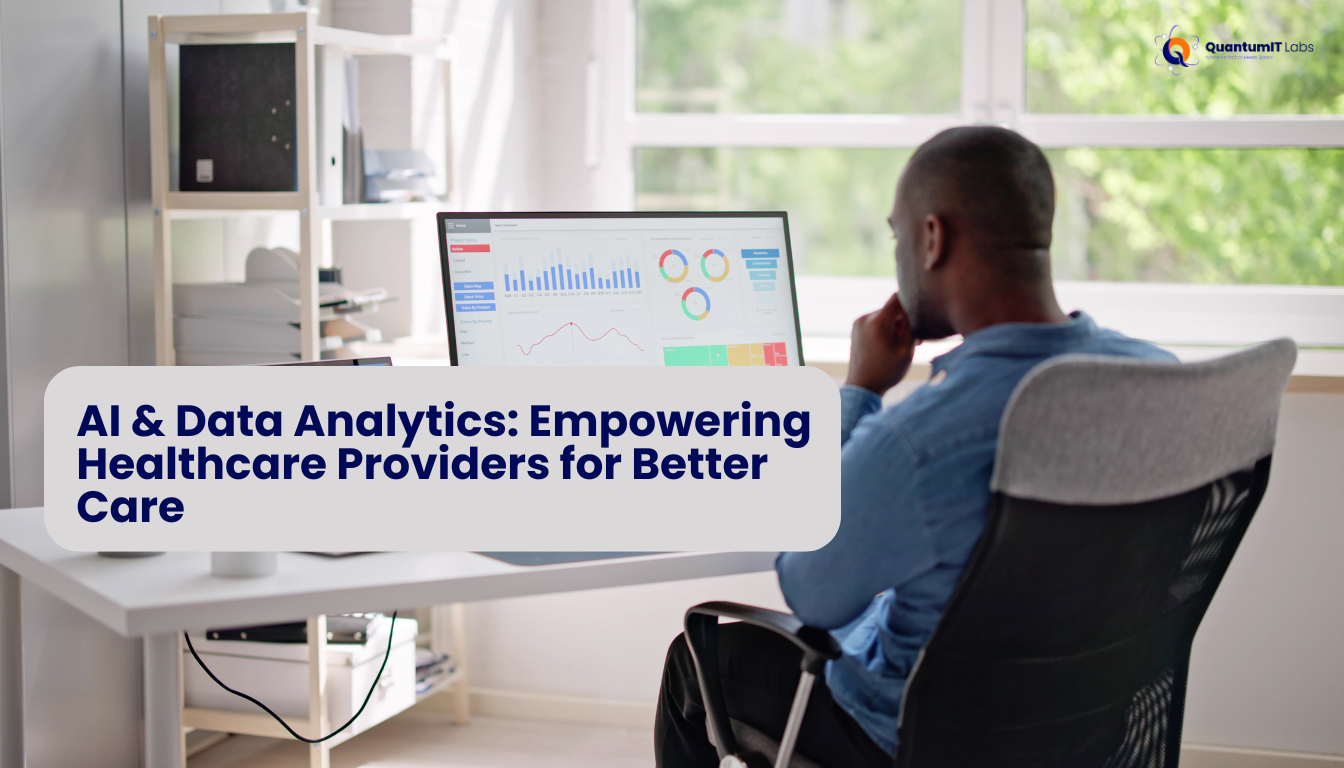The healthcare industry is undergoing a profound transformation, and at the heart of this evolution is the combination of artificial intelligence (AI) and data analytics. With healthcare providers facing increasing pressure to deliver high-quality care while managing costs, the use of AI and data analytics is providing critical solutions to streamline operations, enhance decision-making, and improve patient outcomes.
In this blog, we’ll explore how AI and data analytics are empowering healthcare providers, revolutionizing how care is delivered, and improving the overall patient experience.
1. Data-Driven Insights for Better Patient Care
AI-powered data analytics can analyze vast amounts of patient data in real-time, extracting valuable insights that would be impossible for human providers to process on their own. These insights are crucial in helping healthcare professionals understand patient needs, predict potential risks, and create personalized treatment plans.
For example, AI algorithms can analyze patterns in patient medical histories, lab results, and genetic information to provide healthcare providers with more accurate predictions about potential health issues, from chronic diseases to acute conditions. By having access to these data-driven insights, healthcare professionals can make more informed decisions and take proactive steps to prevent health complications before they arise.
2. Enhanced Decision-Making with AI
In an environment where every second counts, AI can help healthcare providers make better, faster decisions. Machine learning algorithms are designed to learn from past medical data, continuously improving the accuracy of their predictions. This can be particularly beneficial in fields such as radiology, pathology, and oncology, where AI can assist in diagnosing diseases based on patterns in medical images or test results.
For example, AI tools can scan and analyze medical images (like CT scans or MRIs) to detect abnormalities such as tumors or fractures with incredible precision. These tools not only increase diagnostic accuracy but also reduce the chances of human error, ensuring that patients receive the right treatment at the right time.
3. Optimizing Resources and Reducing Costs
Healthcare providers are under constant pressure to optimize resources, minimize costs, and improve efficiency. AI and data analytics play a vital role in streamlining operational processes, from scheduling to resource allocation. Hospitals and clinics can use AI to predict patient inflow, optimize staffing levels, and manage inventories more effectively.
For instance, AI can analyze historical patient data to predict peak periods, enabling healthcare facilities to adjust staffing and resource allocation accordingly. Additionally, predictive analytics can be used to manage hospital beds, streamline supply chain management, and prevent medical supply shortages.
By automating routine administrative tasks, healthcare providers can reduce operational inefficiencies, lower administrative costs, and ultimately pass on those savings to patients, improving the accessibility and affordability of care.
4. Enhancing Clinical Workflow with Automation
AI-powered tools are also automating key aspects of clinical workflows, allowing healthcare providers to focus more on direct patient care. For example, AI can automate routine tasks like data entry, billing, and scheduling, freeing up valuable time for doctors, nurses, and support staff to concentrate on providing high-quality care.
Clinical decision support systems powered by AI can also assist doctors in making quick and accurate treatment decisions by providing them with relevant patient information, treatment options, and drug interactions. This ensures that patients receive the most up-to-date, evidence-based care without unnecessary delays.
5. Real-Time Monitoring for Continuous Care
Another critical benefit of AI and data analytics in healthcare is the ability to monitor patients in real time, even after they leave the hospital. Wearable devices, mobile apps, and remote monitoring tools are increasingly being used to track patients’ vital signs, behavior, and treatment adherence outside of the traditional healthcare setting.
For instance, AI-powered sensors can monitor a patient’s heart rate, blood pressure, and oxygen levels in real time, alerting healthcare providers if any abnormalities are detected. This continuous monitoring allows healthcare providers to intervene before small issues become critical problems, reducing hospital readmissions and improving long-term patient outcomes.
6. Improving Population Health Management
AI and data analytics can also be used to improve population health management by analyzing large datasets to identify trends and health risks across different patient populations. By understanding these trends, healthcare providers can develop targeted interventions to address health disparities, improve preventive care, and allocate resources more effectively.
For example, AI can analyze data from a community or a specific group of patients to identify common risk factors for diseases like diabetes or heart disease. Healthcare providers can then implement tailored health programs or initiatives to reduce those risks, improving the health of entire populations.
Conclusion: AI & Data Analytics as the Future of Healthcare
AI and data analytics are reshaping the healthcare landscape by enabling healthcare providers to offer more accurate, personalized, and efficient care. From improving clinical decision-making and resource optimization to enhancing patient outcomes through continuous monitoring, the integration of AI and data analytics is driving better health outcomes for patients and more efficient operations for healthcare providers.
By embracing these technologies, healthcare organizations can stay ahead of the curve, ensuring that they not only meet the demands of today’s healthcare environment but also thrive in the future of healthcare delivery.
As AI and data analytics continue to evolve, the potential for improving healthcare outcomes is limitless. Healthcare providers who harness the power of these technologies will be better equipped to deliver high-quality care while driving innovation and efficiency across the healthcare system.
Are you ready to embrace the future of healthcare? Start integrating AI and data analytics into your healthcare practices today to improve patient care, reduce costs, and streamline your operations. 🚀

